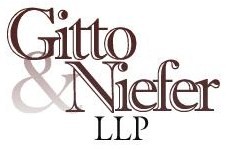A Cash Advance is Not a Litigation Expense: Remember to carefully scrutinize any closing statement arising out of a third-party action
PRACTICE TIP: While the workers’ compensation insurance carrier is responsible for its equitable share of the cost of litigation giving rise to a third party settlement or judgment, careful scrutiny of the closing statement will help to preserve the workers’ compensation carrier’s full credit arising out of the third party action.
Often injured workers who have access to limited resources during the pendency of a third party action arising out of a work injury look to litigation funding services in an effort to cover personal and other expenses. At the time of settlement or judgment, the injured worker is obligated to pay the litigation funding agency the amount advanced in addition to any associated costs and interest.
Upon the filing of a closing statement with the Court overseeing the third party action, counsel representing the injured worker will appropriately deduct the payment made to the litigation funding agency when reporting the net amount received by the injured worker at the time of settlement. However, such a payment does not constitute a “litigation expense” for purposes of calculating the workers’ compensation carrier’s credit/offset rights under Section 29 of the Workers’ Compensation Law, but is part of the net recovery. Careful review of all closing statements should be undertaken to identify any payments out of the settlement which appear to be a personal obligation undertaken by the claimant rather than a legitimate litigation expense.
At the time the Workers’ Compensation Administrative Law Judge memorializes the claimant’s net recovery for purposes of Section 29, the carrier should be prepared to request that any personal obligation undertaken by the claimant should be excluded from the litigation expenses giving rise to the third party settlement or judgment. Thus, the personal obligation will be added to the amount of the net recovery increasing the carrier’s offset/credit rights. The WCB has demonstrated a willingness to consider these issues even if they are overlooked at the time of the workers’ compensation hearing. In McLaughlin Plumbing, WCB 4020 6079 (12/28/07), a Board Panel returned the case to the trial calendar for consideration of appropriate litigation expenses in the context of what appeared to be a cash advance even though neither party noted an exception to the initial ruling which had deducted the apparent cash advance from the net recovery.
If you have any questions about this or any other issue, contact David L. Niefer at dniefer@gittolaw.com or (607) 723-0600 or any of the attorneys in our office. If you would like a training session on this or any area of the Workers’ Compensation Law, please do not hesitate to contact our firm.
This information is provided for general guidance only. This information should not be used as a substitute for consultation with legal counsel. Each case presents unique facts requiring individual analysis.




